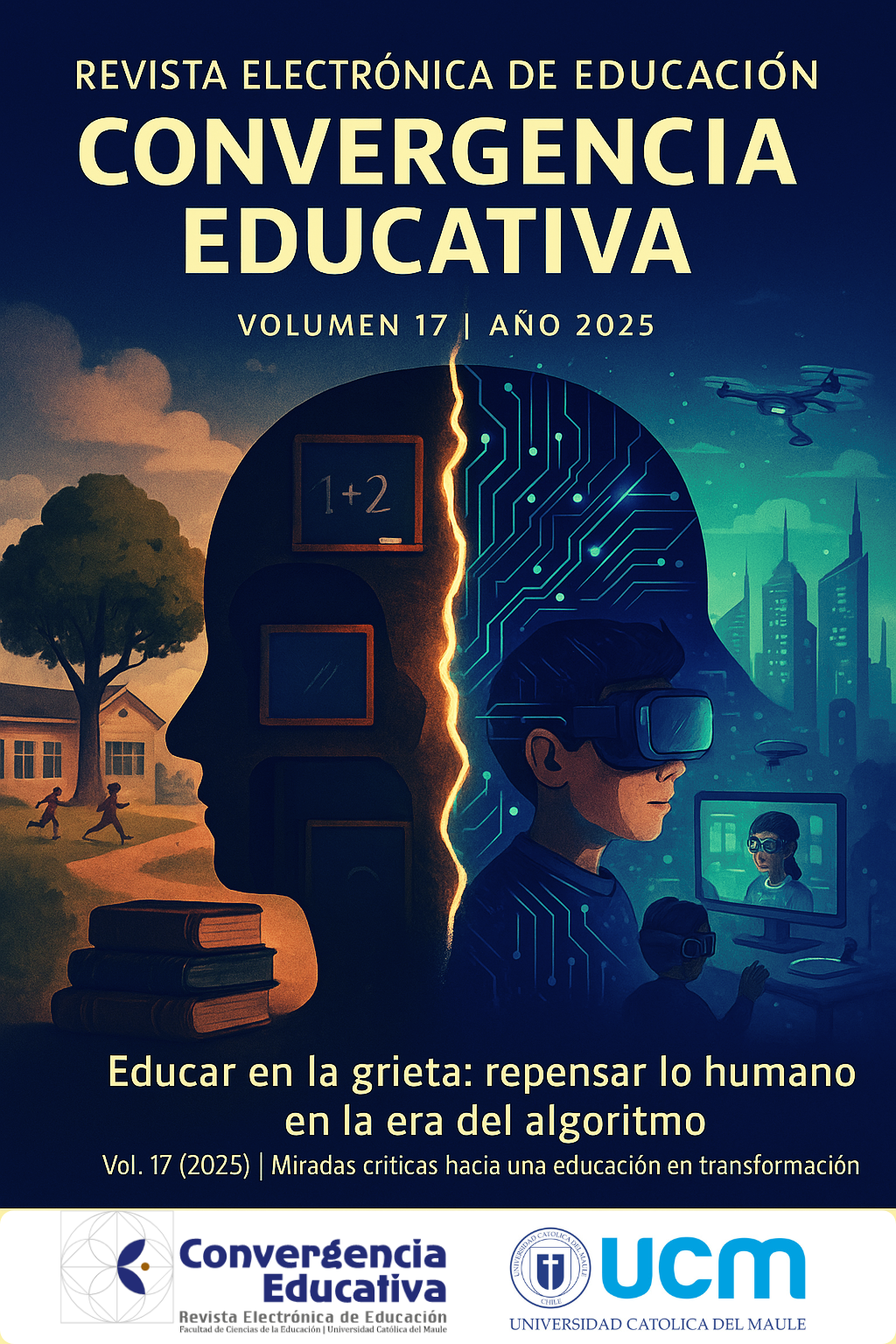Interactions among the components of pedagogical content knowledge in science teaching A review of academic production
Main Article Content
Abstract
Article Details
Akin, F. N., & Uzuntiryaki-Kondakci, E. (2018). The nature of the interplay among components of pedagogical content knowledge in reaction rate and chemical equilibrium topics of novice and experienced chemistry teachers. Chemistry Education Research and Practice, 19(1), 80–105. https://doi.org/10.1039/c7rp00165g
Aydin, S., & Boz, Y. (2013). The nature of integration among PCK components: A case study of two experienced chemistry teachers. Chemistry Education Research and Practice, 14(4), 615–624. https://doi.org/10.1039/c3rp00095h
Aydin, s. (2012). Examination of chemistry teachers’ topic-specific nature of pedagogical content knowledge in electrochemistry and radioactivity. Research and Practice,. 14, 615-624 https://www.researchgate.net/publication/316648253
Aydin, S., Demirdogen, B., Nur Akin, F., Uzuntiryaki-Kondakci, E., & Tarkin, A. (2015). The nature and development of interaction among components of pedagogical content knowledge in practicum. Teaching and Teacher Education, 46, 37–50. https://doi.org/10.1016/j.tate.2014.10.008
Baxter, J. A.; Lederman, N. G. (1999). Assessment and measurement of pedagogical content knowledge. In: Gess-Newsome, J.; Lederman, N. G. (Eds.). Examining pedagogical content knowledge: the construct and its implications for science education Dordrecht, The Netherlands: Kluwer Academic Publishers p. 147-161.
Betul & Yezdan, (2019). Interactions between the science teaching orientations and components of pedagogical content knowledge of in-service chemistry teachers. Chemistry Education Research and Practice, 21, 95–112. Doi https://doi.org/10.1039/C9RP00092E
Chan, K. K. H. (2022). A critical review of studies using the pedagogical content knowledge map approach. International Journal of Science Education, 44(3), 487–513. https://doi.org/10.1080/09500693.2022.2035011
De Almeida Ferreira, N. S. (2002). As pesquisas denominadas “estado da arte.” Educação & Sociedade, 23(79), 257–272. https://doi.org/10.1590/s0101-73302002000300013
Demirdöğen, B., Hanuscin, D. L., Uzuntiryaki-Kondakci, E., & Köseoğlu, F. (2016). Development and nature of preservice chemistry teachers' pedagogical content knowledge for nature of science. Research in Science Education (Australasian Science Education Research Association), 46(4), 575–612. DOI 10.1007/s11165-015-9472-z
Gao, S., Damico, N., & Gelfuso, A. (2021). Mapping and reflecting on integration of the components of pedagogical content knowledge (PCK) for teaching natural selection: A case study of an experienced middle-school science teacher. Teaching and Teacher Education, 107. https://doi.org/10.1016/j.tate.2021.103473
Grossman, P. L. (1990). The making of a teacher: Teacher knowledge and teacher education. Teachers College Press, Teachers College: Columbia University.
Hashweh, M. Z. (2005). Teacher pedagogical constructions: A reconfiguration of pedagogical content knowledge. Teachers and Teaching, 11(3), 273–292. https://doi.org/10.1080/13450600500105502
Krasilchik, M. (2000). Reformas e realidade: o caso do ensino das ciências. São Paulo em Perspectiva, 14(1), 85-93. https://doi.org/10.1590/s0102-88392000000100010
Lee, E., & Luft, J. A. (2008). Experienced secondary science teachers' representation of pedagogical content knowledge. International Journal of Science Education, 30(10), 1343- 1363. https://doi.org/10.1080/09500690802187058
Magnusson, S., Krajcik, J., & Borko, H. (1999). Nature, source, and development of pedagogical content knowledge for science teaching. In Gess-Newsome & Lederman (Eds.), PCK and Science Education (pp. 95-132). Netherlands.
Mapulanga, T., Ameyaw, Y., Nshogoza, G., & Bwalya, A. (2024). Integration of topic-specific pedagogical content knowledge components in secondary school science teachers’ reflections on biology lessons. Discover Education, 3(1), 1–19. Doi:10.1007/s44217-024-00104-y
Mishra, P., & Koehler, M. J. (2006). Technological pedagogical content knowledge: a framework for teacher knowledge. Teachers College Record, 108(6), 1017-1054. http://dx.doi.org/10.1111/j.1467-9620.2006.00684.x
Padilla, K., & Van Driel, J. (2011). The relationships between PCK components: the case of quantum chemistry professors. Chemistry Education Research and Practice, 12, 367–378. https://www.rsc.org/cerp
Park, S., & Chen, Y. C. (2012). Mapping out the integration of the components of pedagogical content knowledge (PCK): Examples from high school biology classrooms. Journal of Research in Science Teaching, 49(7), 922–941. https://doi.org/10.1002/tea.21022
Park, S., & Oliver, J. S. (2008). Revisiting the conceptualisation of pedagogical content knowledge (PCK): PCK as a conceptual tool to understand teachers as professionals. Research in Science Education, 38(3), 261–284. https://doi.org/10.1007/s11165-007-9049-6
Romanowski, J. P., & Ens, R. T. (2006). As pesquisas denominadas do tipo "estado da arte" em educação. DOAJ (DOAJ: Directory of Open Access Journals). https://doaj.org/article/1f9997d7de6a45648adb3972ca6f8252
Selcan. (2016). Examination of interaction between pre-service chemistry teachers’ pedagogical content knowledge and content knowledge in electrochemistry. thesis submitted to the graduate school of natural and applied sciences of middle east technical university. https://doi.org/10.33902/JPR.2022.165
Selcan, B., & Boz. (2022). Examination of interaction between pre-service chemistry teachers’ pedagogical content knowledge and content knowledge in electrochemistry. Chemistry Education Research and Practice, 24. https://doi.org/10.33902/JPR.2022.165
Sen, M. (2023). Suggestions for the analysis of science teachers’ pedagogical content knowledge components and their interactions. Research in Science Education (Australasian Science Education Research Association), 53(6), 1081–1095. Doi:10.1007/s11165-023-10124-7
Shulman, L. (1986). Those who understand: Knowledge growth in teaching. Educational Researcher, 15, 4–14.
Shulman, L. (1987). Knowledge and teaching: Foundations of the new reform. Harvard Educational Review, 57(1), 1-22.
Soysal, Y. (2018). An exploration of the interactions among the components of an experienced elementary science teacher's pedagogical content knowledge. Educational Studies, 44(1), 1–25. https://doi.org/10.1080/03055698.2017.1331839
Suh, J., & Park, S. (2017). Exploring the relationship between pedagogical content knowledge (PCK) and sustainability of an innovative science teaching approach. Teaching and Teacher Education, 64, 246-259. https://doi.org/10.1016/j.tate.2017.01.021
Strauss, A., & Corbin, J. M. (1990). Basics of qualitative research: Grounded theory procedures and techniques. Sage Publications, Inc.
Tamir, P. (1988). Subject matter and related pedagogical knowledge in teacher education. Teaching and Teacher Education, 4(2), 99–110. https://doi.org/10.1016/0742-051x(88)90011-x
Zambrano, A., Salazar, T., Candela, B., & Villa, L. (2013). Las líneas de investigación en educación en ciencias en Colombia. Revista EDUCyT, 7, 78–109

Este obra está bajo una licencia de Creative Commons Reconocimiento-NoComercial-CompartirIgual 4.0 Internacional


